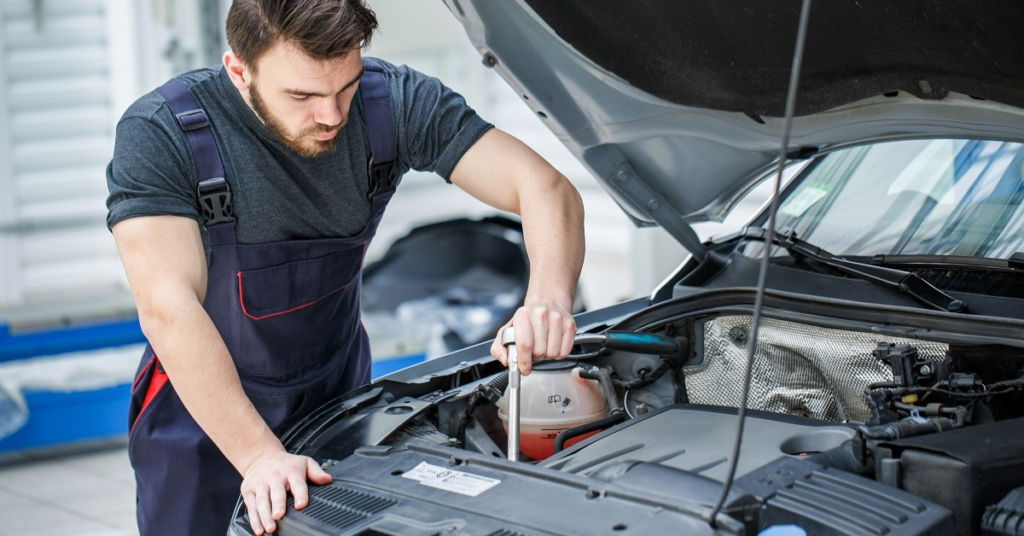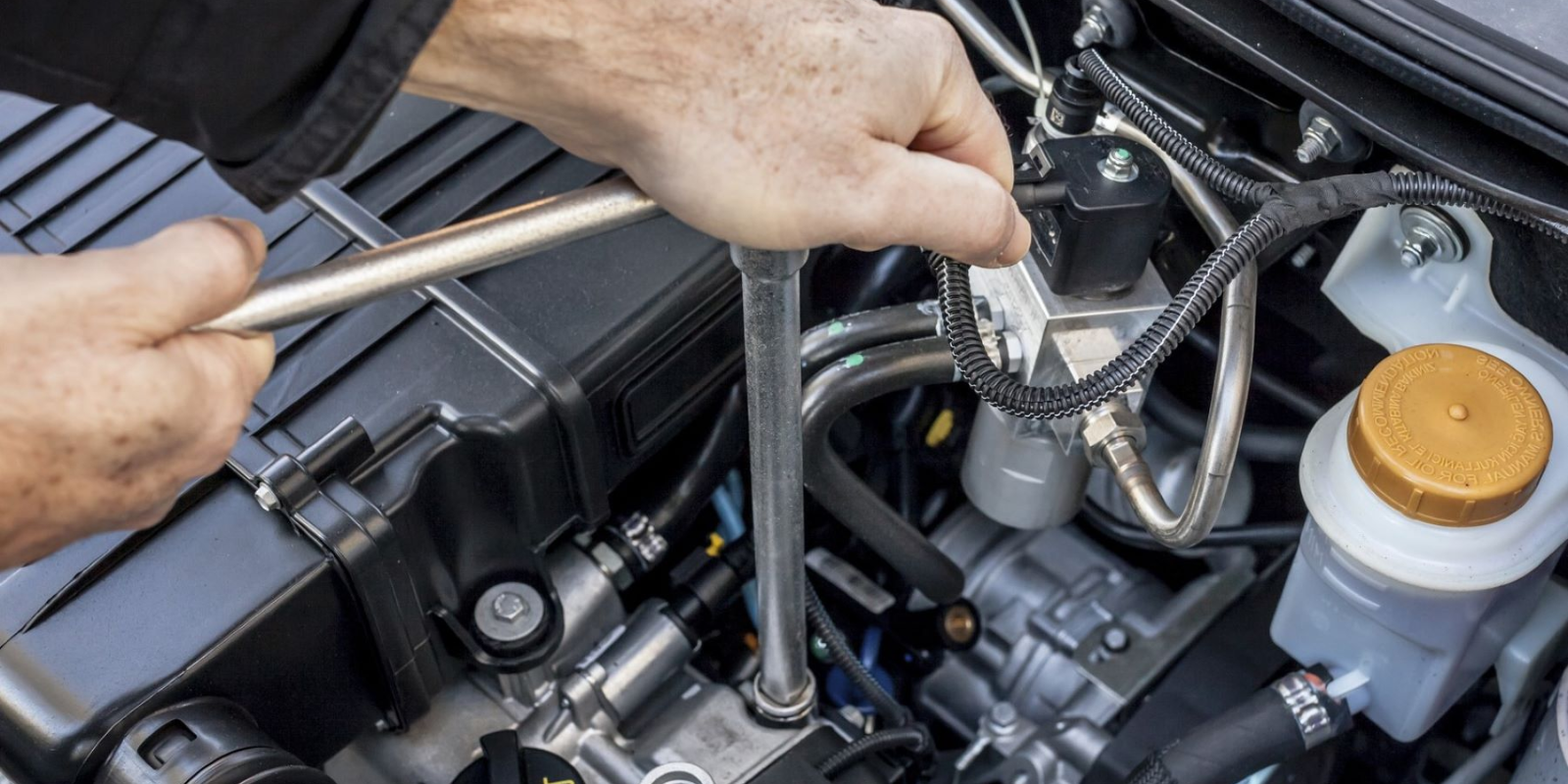Nowadays, learning to drive comes with the added necessity of knowing about your car and its repair. Whether you’re going on a long drive,winter or summer vacation, attending a ceremony party, or going to the office, it’s difficult when the car breaks down or faces engine issues that may cause delays. To avoid this, you must have basic knowledge of car engine repair so that you can restart your car without waiting for a mechanic. The engine is a crucial part of the car that makes driving powerful and smooth. If you’re facing an engine issue for the first time, we will give you a proper step-by-step guide. We’ll briefly explain the basic components of the engine, how to identify common issues, and their solutions.
Understanding the Basics of a Car Engine
When you repair your car engine, it is important to have basic knowledge about it. The engine is the heart of a car; it is used to run the vehicle, ensure smooth driving, and supply power. The engine swaps fuel into energy to supply power to the wheels, allowing the car to function efficiently. Here, we have selected some key components.
Types of Car Engines
There are various types of engines, such as petrol engines, diesel engines, inline vs. V-shaped engines, and hybrid & electric engines, each engine is different from each other. These engines create energy in different ways. For example, hybrid and electric engines meld fuel and battery power to produce energy. Similarly, inline and V-shaped engines are specially designed to impact power and capability. Petrol and diesel engines ignite fuel using spark plugs and compression.
Key Components of an Engine
Cylinder & Pistons—The engine’s backbone retains multiple cylinders. Most cars have a 4, 6, or 8-cylinder engine. The more cylinders an engine has, the more power it generates. A cylinder consists of a piston and an inlet and exhaust valve. The piston moves up and down, generating power that provides energy to the vehicle.
Spark Plugs—The spark plug provides a spark to ignite the air and fuel mixture in the engine, which creates power.
Fuel Injectors—Fuel injectors are used to supply fuel in the engine. They regulate the injection of fuel into the engine’s internal combustion chamber, where it mixes with air and ignites. In the combustion chamber, diesel, hydrogen, or natural gas is reformed into power to supply energy to the vehicle.
Radiator & Cooling SyStem—radiator is a part of the engine cooling system that obstructs the engine from overheating and ensures smooth functioning.
Timing Belt/Belt/Chain—The engine uses a timing belt, timing chain, or a set of timing gears to keep the crankshaft and camshaft in sync.
Diagnosing Engine Problems
If your car’s engine has any issues, you will notice common symptoms. By diagnosing them in time, you can avoid costly repairs. Here are some common problems.
Common Engine Problems and Their Symptoms
Check Engine Light On
If the enginelight is on, check what problem it is discovering
Engine Not Starting
There may be a battery issue. If the battery is low, recharge it and check the terminals, cleaning them if required. Check the petrol or diesel level and clean the filter. The spark plug or fuel injectors may be blocked.
Overheating Engine
If the coolant level in the radiator is low or there is a leakage or blockage, the cooling system will not function correctly. If the water flow in the thermostat is blocked, the engine can overheat.
Strange Noises from Engine
If the engine is making strange noises, it is a sign of danger. You should stop the car instantly to prevent a major issue.
- If you hear a knocking or tapping sound, it could be due to lubrication issues, poor fuel quality, or an ignition timing issue.
- A whistling sound may indicate a vacuum leak or coolant leakage.
- A grinding noise could be caused by faulty bearings, clutch, or gearbox problems.
If you hear any strange noise, get it fixed immediately.
Excessive Smoke Emission
- Black smoke appears due to a rich fuel mixture, a clogged air filter, a leaking fuel injector, or a faulty MAF sensor.
- Blue or grey smoke is generated by worn-out piston rings or burning engine oil.
- White smoke results from coolant leakage, a head gasket leak, or oil combustion issues.
When to Seek Professional Help
There are some car repair tasks you can fix yourself, but if the issue is severe, it’s best to hire professionals to avoid costly repairs and ensure the car is ready for use on time. Here are some cases where you should seek a mechanic’s help.
Signs That the Repair is Beyond DIY
Check Engine Light Constantly On
If the engine light, temperature light, oil pressure, battery, or any other warning lights keep turning on even after clearing the scanner, it is a sign of a serious issue.
Excessive Smoke or Burning Smell
If the engine continuously exudes white, blue, or black smoke, it could be due to burning engine oil, a head gasket leak, or a fuel system issue. Therefore, it’s best to have a mechanic check it as soon as possible.
Major Oil or Coolant Leak
If you notice oil or coolant leak stains under your car and excessive fuel leakage is causing the engine to overheat, it is a crucial sign that your car needs professional care.
Knocking or Loud Metal Noises
If you hear knocking, squealing, or grinding sounds, it is a sign of major damage.
Frequent Overheating
If the engine keeps overheating even after checking the radiator, thermostat, and coolant, or if the coolant keeps running out, the radiator is leaking, or steam is coming out, it can cause acute engine damage.
Choosing a Reliable Mechanic
Choosing a professional and reliable mechanic for car repair and maintenance is very important. If you hire an honest, expert, and eco-friendly mechanic, they will not only deliver better performance but also help you save money. Before hiring a mechanic, make sure to check a few basic factors.
Check Experience and Certification
Always choose a certified mechanic with experience in their field. If you have a specific car model, it’s best to select a mechanic who specializes in that model or check what types of cars they work on. Also, ensure that the mechanic is related to a reputable workshop or company.
Pay Attention to Online Reviews and Recommendations
Reviews and ratings help you understand the quality of services. Check platforms like Google, Facebook, or local auto forums to see what people say about the mechanic or workshop. If they have fine reviews and excellent ratings, then there’s no issue.
Clear Pricing Policy
Get a price estimate in advance and confirm what services will be provided. Make sure there are no hidden charges. If the mechanic is offering services at a very low price, they might be using low-quality elements. On the other hand, if they are charging too much, carefully inspect whether they are adding any unnecessary repairs.
Warranty on Repairs
Always confirm the warranty or guarantee details, including the duration or mileage covered. Most good workshops provide a warranty, which is a sign of their credibility.
Verify Specialization
If you have a specific car or model, it’s best to choose a mechanic who specializes in that model or check what types of cars they have serviced before.
Customer Service
A professional mechanic prefers customer satisfaction. They inform the customer about all issues without hidden charges, provide the best advice, and fully explain the problem and how it will be fixed.
Conclusion
If you are a beginner, it’s best to have knowledge about your car’s engine, diagnose common problems, and perform timely maintenance. This will help you avoid costly repairs and long waits for a mechanic.




